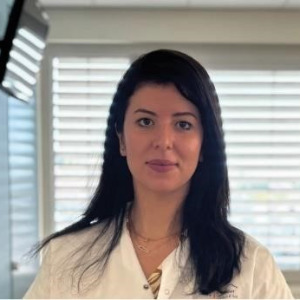Education, Patient Advocacy & Equity
In modern oncology, patient empowerment and equitable care are as critical as clinical treatment. Education, Patient Advocacy & Equity are central to ensuring that patients and caregivers are well-informed about disease management, treatment options, and available resources. Comprehensive education initiatives help individuals make informed decisions, adhere to treatment plans, and navigate the complexities of cancer care. Patient advocacy strengthens the voice of those affected, promoting policies and practices that prioritize patient needs, improve access to therapies, and support participation in clinical trials. Health equity efforts aim to reduce disparities in care delivery, ensuring that every patient receives high-quality treatment regardless of socioeconomic status, ethnicity, or geographic location.
The integration of Education, Patient Advocacy & Equity extends beyond information-sharing to actionable strategies that foster inclusivity and empowerment. Oncology teams collaborate with advocacy organizations to develop culturally sensitive educational programs, provide access to supportive services, and address systemic barriers to care. Policies that promote equitable access to diagnostics, therapies, and survivorship programs are critical for improving outcomes across diverse populations. By embedding education, advocacy, and equity into standard oncology practice, healthcare providers can enhance patient engagement, optimize treatment adherence, and support holistic, patient-centered care that benefits all individuals affected by cancer.

Rajvir Dahiya
University of California San Francisco, United States
Atif A Ahmed
University of Washington-Seattle Children’s Hospital, United States
Thomas J Webster
Northeastern University, United States
Paulo Cesar De Morais
Catholic University of Brasilia, Brazil
Allen Chen
Olympic Medical Center, United States
Shilpa S Dhar
UT MD Anderson Cancer Center, United States



Title : A novel blood-based mRNA genomics technology for cancer diagnosis and treatment
Rajvir Dahiya, University of California San Francisco, United States
Title : Nanomedicine in humans: 30 years of fighting diseases
Thomas J Webster, Northeastern University, United States
Title : Diagnosis and treatment of primary cardiac lymphoma in an immunocompetent 27-year-old man
Moataz Taha Mahmoud Abdelsalam, Madinah Cardiac Center, Saudi Arabia
Title : tRNA-derived fragment 3′tRF-AlaAGC modulates cell chemoresistance and M2 macrophage polarization via binding to TRADD in breast cancer
Feng Yan, The Affiliated Cancer Hospital of Nanjing Medical University, China
Title : Multiplexed biosensor detection of cancer biomarkers
Michael Thompson, University of Toronto, Canada
Title : Personalized and Precision Medicine (PPM) through the view of biodesign-inspired translational research: An option for clinical oncologists, caregivers, and consumers to realize the potential of genomics-informed care to secure human biosafety
Sergey Suchkov, N.D. Zelinskii Institute for Organic Chemistry of the Russian Academy of Sciences, Russian Federation